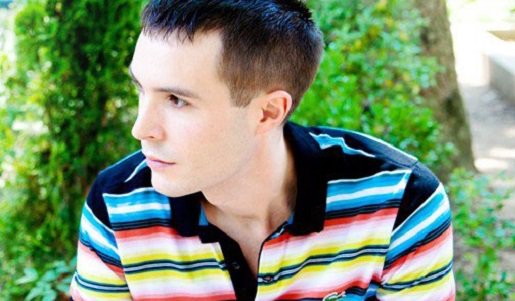‘Stigma against people living with HIV is alive and well in the gay community – and it affects us all’
By Will Stroude

A friend asked me recently why I was so interested in HIV.
In some ways, it’s a good question. I’m not HIV positive myself, as of my last test, so why have I written a play about its effect on gay men? In fact, I’ve had people message me over Facebook before telling me that unless I’m HIV positive, I shouldn’t even be speaking about it. That particular message came from somebody who was positive himself. I was sensitive to his vulnerability, but does not having HIV mean that I shouldn’t discuss it?
Part of being a writer – and, I guess, a human being – is empathy. Thinking from another person’s point of view, and understanding what emotions make them behave in a particular way. And to do this we remember similar emotions from our own lives. If an HIV diagnosis can make somebody feel ashamed, afraid to tell others, and even like they’re not worthy of finding love, what could that possibly remind me of?
Oh yes, growing up gay. If you’re reading this and didn’t hide yourself away, and never encountered homophobia, then I’m happy for you and I hope my future children have the same upbringing with their gay dads. But for me, school in the closet was a constant terror of being found out as lesser or not normal. Talking so loudly and passionately about how fit girls were I could almost convince myself, if I hadn’t been sneaking glances at the boys’ arses.
I remember how lonely it was to feel different. And there are few things, I’ve been told by lovers and greatly treasured friends, that make people feel more different than a HIV diagnosis: especially when the regime of medication makes the diagnosis a physical reality. If you’re a gay man and already struggling with feelings of low self-worth, then getting HIV can sometimes seem to be a confirmation of that worthlessness.

No one is worthless. But stigma against people living with HIV is alive and darkly slithering on the gay scene. Sometimes if you’ve grown up feeling different you can react by pushing other difference violently away. If you’ve been made to feel powerless for being gay, making someone else feel powerless because they have HIV can seem like an attempted reclamation of that power. The same thinking can perhaps apply to online racism, and camp-shaming.
But that power is hollow at the core. To follow a lifestyle of shaming others is to increase your own sense of worthlessness. Unfortunately, the stigma that arises from bullying has long and far-reaching tentacles. People may stop speaking about HIV. And when we lack speech between ourselves as a community we lack education, breeding ignorance and fear. Why some otherwise lovely men may hold completely irrational views about HIV positive guys.
Related: Meet the cast and characters of ‘The HIV Monologues’
This is why I’ve written The HIV Monologues. I want to speak about the subject. It affects me as a gay man, it affects my friends and my loved ones. Imagine if the love of your life slipped through your fingers because you had ‘no poz guys’ on your Grindr profile. His HIV status doesn’t affect his ability to love and make you feel full of pride through his touch. The play begins with the most amazing Tinder date between two guys, until one of them discloses…
As a community, our history is shaped by the AIDS crisis and the advent of life-saving HIV medication. Researching the play, I interviewed many men who had lived through these times and discovered a sense of the sheer loss: friends, boyfriends, lovers. Yet amongst the pain there was always humour, because how else do we remember those we loved? So the play speaks about HIV from then to now with light, empathy and, sometimes, a shared smile.
‘The HIV Monologues’ is at Miranda London, the Ace Hotel, 100 Shoreditch High Street, E1 6JQ from the 2-19 February. To book tickets, visit dragonfliestheatre.co.uk/hiv-monologues.
‘The HIV Conversations’ are available to listen to at hiv-conversations.uk.
